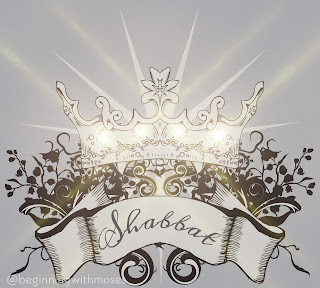I love that on the cusp of December - as all our eyes become fixed on Christmas - our pastors concluded their "mini-series" through Revelation 1-5. Fixing our eyes on John's magnificent vision of the Lamb on His throne. That radiant, overwhelming sight punctuated by the proclamation of “Holy! Holy! Holy!” echoing throughout the heavens.
I loved the timing of that final sermon, because we should never lose sight of the fact that John's vision is the very essence of Christmas. The One who arrived on earth - in the anonymity of a Bethlehem manger - is the very same One whose holiness overwhelms the heavens.
And what astounds me when I read John's testimony is that one day, you and I won't simply have a temporary vision like John's, but the everlasting sight of the risen Messiah on His throne. Beholding Him with our very own resurrected eyes. And we'll not just hear the proclamations of His holiness, but we'll be joining in with the eternal chorus:
Holy, Holy, Holy!
The first time I read this Revelation passage as a follower of Jesus, I was actually taken aback. I knew this passage. Well, not this verse exactly. But I'd been proclaiming God's holiness in triplicate my whole life. It's the pinnacle of the synagogue worship on the Sabbath and most festivals. And for as long as I could remember, I'd been chanting it in Hebrew as I stood with the rest of the congregation, all of us rising up on our toes with each repetition:*
Kadosh! Kadosh! Kadosh!
The rabbis say that we rise up on our toes with each kadosh as a way of straining upward toward our holy, heavenly God.
To be honest, I didn't even know what kadosh meant when I was little, but I could feel the reverence and awe permeating the room. And so when I eventually picked up on the fact that I was saying "Holy! Holy! Holy!" with my words, it made perfect sense, because it matched what was happening in our posture and in my heart.
Of course, we weren't reciting Revelation in synagogue. We were echoing the heavenly chorus from that moment when Isaiah experienced his vision of God's throne, surrounded by the same same six-winged creatures that John saw:
Kadosh! Kadosh! Kadosh! Adonai Tz'vaot M'lo Khol Ha'aretz K'vodo!
Holy! Holy! Holy! The Lord of Hosts, the entire world is filled with His Glory!
After last week's Revelation sermon, I decided to look at these two passages next to one another - these "holy triplets" - one found in the Old and one in the New. And what struck me is something that will stay with me.
The visions were so much alike. Isaiah and John both beheld six-winged creatures who were gathered around God's throne, leading the exact same chorus that reverberated throughout the heavens.
Kadosh! Kadosh! Kadosh! Holy! Holy! Holy!
Holiness tripled. Both Jewish and Christian commentators say that repeating a word three times speaks to intensity, to fullness, to completeness. God's holiness is overwhelmingly, abundantly, whole. Filling every crevice of the earth and the heavens.
"His glory fills the whole earth!" Isaiah 6:3
Fullness is really a theme of the whole Isaiah vision. Just the hem of God's robe filled the Temple. Smoke filled the Temple. His glory fills all the earth. And in Revelation, too, all of heaven was filled with the praise of God's holiness.
Some rabbis say that the triple Kadosh! also proclaims God's holiness throughout all of time: all the past, all the present and all the future. Which is exactly what John heard, isn't it?
"Who was, and is, and is to come!" Revelation 4:8
Not only were the visions and choruses of Isaiah and John almost identical, but their missions were the same as well. They were each given this taste of heavenly worship as part of their commissioning to share messages with God's people.
Yet what occurred to me as I looked at these two passages side-by-side, was that while the visions were virtually identical, the content of the messages were not.
Isaiah's "Kadosh! Kadosh! Kadosh!" prepared him to announce the coming Babylonian captivity and exile, while John's "Holy! Holy! Holy!" prepared him to share about the final heavenly victory and freedom.
And it struck me that, whether preparing for freedom or exile, the song of praise was the same. Still is the same. Because God's holiness is constant. It is full.
And so we can declare it at all times. Even now. Especially now. No matter what "now" looks like - good or bad or in-between. Proclaiming "Holy! Holy! Holy" is preaching the gospel to ourselves. It is praising the One who is working all things for good. Because a wholly-holy God is one who can be trusted.
So whether we find ourselves on the Isaiah/exile side of the vision, or on the John/redemption side of it, I pray that we’d be able to proclaim the fullness of God’s perfect, redemptive holiness. That you and I would learn to proclaim “kadosh, kadosh, kadosh” every single day.
And that as we're all fixing our eyes on Christmas, that we'd fix our eyes on the holy One who dwelled among us, who conquered the grave, and who reigns in eternity.
*I misspoke in my podcast earlier this month. I said we bowed with each "kadosh," but I was remembering the prayer leading into Kadosh. Oops! Sorry!
.PNG)



